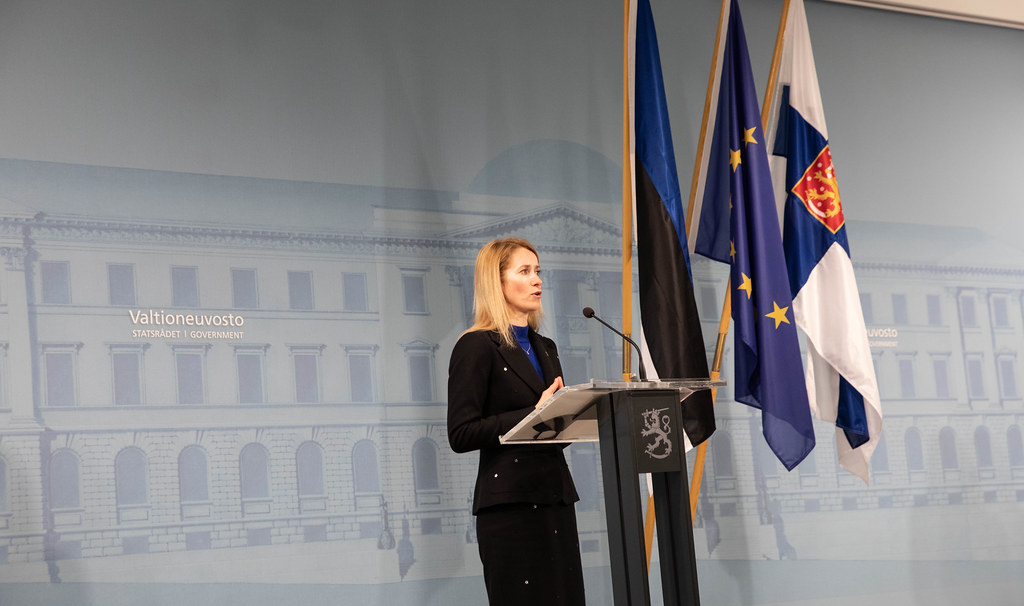
Russian Authorities Launch Criminal Proceedings Against Estonian Prime Minister Kaja Kallas
In an unprecedented move, Russian authorities initiated criminal proceedings on Tuesday against Estonian Prime Minister Kaja Kallas, raising allegations of politically motivated charges. The charges also extend to Estonian Secretary of State Taimar Peterkop and Lithuanian Culture Minister Simonas Kairys, accused of destroying or damaging Soviet monuments dedicated to Soviet soldiers, as reported by Russia’s state-run Tass news.
Background and Accusations
The Kremlin’s accusations include the destruction or damage of monuments, particularly Soviet memorials, following Estonia’s decision, announced by Kallas, to remove all Soviet monuments from public spaces after Russia’s invasion of Ukraine two years ago. Kallas, Peterkop, and Kairys find themselves facing charges, with the Kremlin spokesperson Dmitry Peskov confirming the proceedings but providing no specific details on when the alleged crime occurred.
Symbolic Move and Kallas’s Response
Although Kallas appears to be the first head of state added to the Russian Interior Ministry’s wanted list since the invasion of Ukraine, the move is widely regarded as symbolic. Responding to the charges, Kallas took to social media, expressing her lack of surprise and emphasizing that this only reinforces her commitment to supporting Ukraine in its conflict with Russia.
Historical Context and Personal Stance
In her response, Kallas drew parallels with historical repression by stating that Russia has historically veiled its repressions behind law enforcement agencies. She recounted her family’s history, citing her grandmother and mother’s deportation to Siberia after the KGB issued arrest warrants against them. Undeterred, Kallas affirmed her unwavering support for Ukraine and condemned the Kremlin’s attempt to use legal actions to stifle dissent.
Estonia’s Concerns and Preparedness
Estonia, having been part of the Soviet Union, joined the European Union and NATO in 2004. The NATO expansion to Russia’s border has been a point of contention, with Russian President Vladimir Putin viewing the alliance as a threat. Estonia expressed concerns about a potential Russian threat, prompting a report by the Estonian Foreign Intelligence Service suggesting an increase in Russian troops along the Baltic countries’ borders. Estonia recognizes the need to prepare for potential conflicts and advocates for collective strength with allies.
Stance on Defense Spending and Foreign Policy
Estonia has been a strong advocate for increased defense spending within NATO. Responding to former US President Donald Trump’s remarks, Kallas emphasized the importance of all NATO members contributing more to defense. Estonia’s defense budget is set to exceed 3% of the country’s GDP this year, surpassing NATO’s 2% threshold target.
Foreign Minister’s Anti-Russian Remarks and Support for Ukraine
Estonian Foreign Minister Margus Tsahkna delivered a robust foreign policy speech, expressing strong anti-Russian sentiments and wholehearted support for Ukraine. He condemned aggression and emphasized the need for a world where authoritarianism, force, and arrogance do not prevail.
As Estonia navigates these challenging geopolitical dynamics, the ongoing tensions with Russia continue to shape the country’s foreign policy and defense priorities.